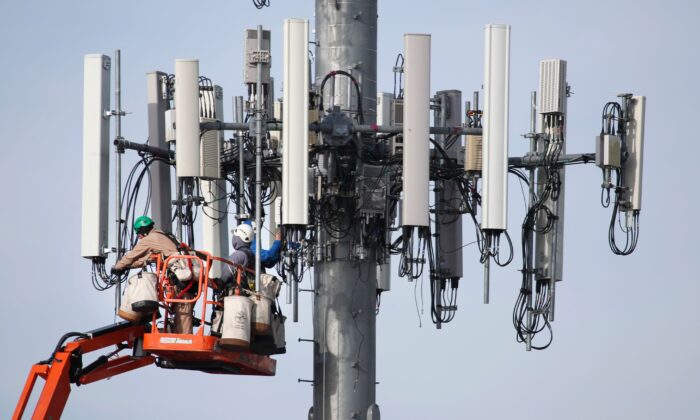33-Year-Old Member of Louisiana Governor’s Staff Dies of CCP Virus Complications
The United States needs to lead the development of 5G wireless network standards, assess any vulnerabilities to hacking, and address national security dangers posed by “high-risk” 5G vendors, according to a document titled “National Strategy to Secure 5G.”
The strategy, recently released by the Trump administration, makes no mention of who “high-risk” 5G vendors might be, but the field of candidates is so narrow as to make clear the target is Huawei.
Washington has stressed that the Chinese company—founded in 1987 by a former People’s Liberation Army engineer—is an extension of the Chinese regime and that it assists Chinese intelligence. Huawei denies that assertion.
The strategy refers to President Donald Trump’s May 2019 executive order, which “establishes the authorities to prohibit certain transactions that involve information and communications technology or services designed, developed, manufactured, or supplied by persons owned by, controlled by, or subject to the jurisdiction or direction of a foreign adversary that pose an undue or unacceptable risk to the national security of the United States.”
To outmaneuver the Chinese regime in the 5G market, the United States will focus on leading the development of robust standards for 5G that would be quickly developed under “open and transparent processes.”
Regarding the hacking risks, the administration “will work with the private sector to identify, develop, and apply core security principles—best practices in cyber security, supply chain risk management, and public safety—to United States 5G infrastructure,” the strategy document says (pdf).
In addition, the United States will work to promote “vendor diversity,” the document says, including by the use of “incentives” and “accountability mechanisms.”
The diversity likely applies to the promotion of Huawei competitors. The two likely candidates would be Ericsson and Nokia, both advanced players in the 5G field and both floated before as companies that could be propped up to undercut Huawei.
It may be unrealistic for those companies to outcompete Huawei on their own. The Chinese giant has received some $75 billion in state subsidies from the regime in Beijing, according to The Wall Street Journal.
The United States has gone to some lengths to exclude Huawei and other key Chinese players from its telecom infrastructure. On March 12, Trump signed the Secure and Trusted Communications Networks Act, which provides $1 billion to replace any equipment made by Huawei or ZTE, another Chinese company, used by rural telecom carriers in the United States.
Other countries, however, aren’t so eager. UK Prime Minister Boris Johnson said Huawei will supply up to 35 percent of the country’s 5G communications infrastructure. Excluding Huawei would have delayed the 5G rollout and cost consumers more, Britain has argued.
5G technology enables cell phone networks to reach data transmission bandwidth comparable to Wi-Fi networks. However, it has a more limited reach, so it requires a denser web of cell towers. Aside from faster mobile internet, it’s expected to allow billions of other devices to be connected to the internet.
This article is from the Internet:White House Outlines 5G Security Strategy, Warns of ‘High-Risk’ Vendors
Yale to Provide 300 Beds, COVID-19 Testing to Police Officers, Firefighters After Criticism
